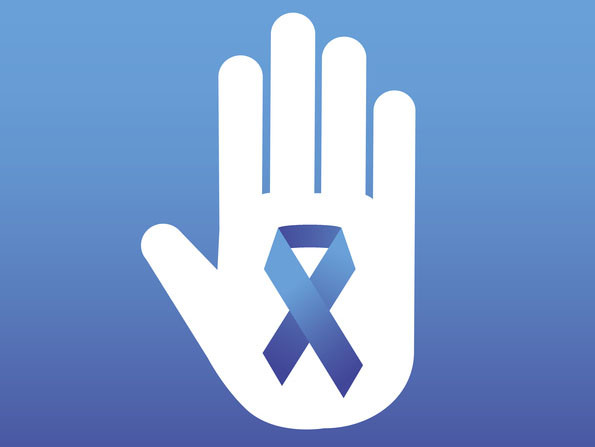Paths to parenting: Choosing single parenthood through pregnancy

Depending on your age and generation, you might not remember a time when single parenthood wasn’t considered a conscious choice for women. Yet years ago, women most often became single mothers due to divorce, the death of a spouse, or an accidental pregnancy. Today, if you’re considering becoming pregnant and having a child on your own, you are certainly not alone — you may know others who have taken this path to parenting, and you’ve certainly seen celebrities do so.
While this path is increasingly common and more widely accepted than in the past, deciding to pursue it can be lonely. This blog post attempts to reduce some of the isolation you may feel and to address some questions you may be asking yourself. (As a therapist, my experience has centered on women choosing single motherhood, and some of my wording reflects this.)
Why choose this path to single parenting?
Some people in their 20s and early 30s prefer to become pregnant, have a child, and parent without a partner. Other people in their late 30s and early 40s who had hoped to enjoy pregnancy and parenting with a partner may not have found the right partner. They may find themselves worrying more and more about declining fertility, which makes dating increasingly stressful. As one woman put it, “Every first date became a ridiculous job interview. I didn’t say it outright but I was thinking, ‘Will you marry me in five minutes and have a baby right away?’”
Do I want to be a single parent?
In my experience, women who consider single motherhood are clear that they want to be mothers. Most tell me that being pregnant and having a genetic child is a priority for them. For this reason, they are willing to consider going it alone. The wanting to be a mom is clear; it is the single part that is not. You may be asking yourself, “Will the challenges of being a single mom outweigh the joys I anticipate in parenthood?”
Years ago, a colleague told me that choosing to become a parent is like jumping off a cliff. It’s hard to clearly envision where or how you’ll land. Like everyone who becomes a parent, you will be jumping off a cliff not knowing the child you will get. As a single, the leap can feel more perilous because there is no one beside you to help cushion your landing.
Can I do it on my own?
When asking this question, people tend to focus on two things: financial security and the support of family, friends, and community.
While one need not be rich to be a parent, raising a child is expensive, and a single-parent household is a single-income household. It makes sense to look at your income, job security, current costs, and anticipated additional costs to see if the math works as you hope it will. Not surprisingly, single mothers report that they feel much more confident moving forward if they have confirmed as best they can that they will not be financially stressed and stretched.
Confirming that you will have help and support from family and friends may be more complicated than tallying up your finances. While some people exploring single parenthood begin the process by checking in with those closest to them, others postpone telling family and friends until they feel secure with their plan. There is always the fear that people you care about will respond negatively.
If you’re concerned about the response, you can’t know for sure whether or how others will be there for you. However, you can probably make some good predictions based on how close you live to them, how much time and energy they have, and whether any family members might have the resources and inclination to help out financially.
What are my next steps?
In most instances, when you feel ready to move forward toward becoming a single mother through pregnancy, it makes sense to begin with a doctor before a donor.
Your fertility is probably on your mind. Hopefully a physical exam, imaging tests, and blood tests will yield reassuring information. You can find a reproductive endocrinologist through your local branch of Resolve, a national organization that offers guidance, advocacy, and support to people experiencing infertility. Another option is the Society for Assisted Reproductive Technologies (SART). This organization assembles yearly statistics for fertility clinics throughout the US. While their website won’t direct you to a specific doctor, it will help you choose your program, and then you can follow up by seeing who is recommended within that program.
It may feel odd to contact a doctor who specializes in infertility when there is no evidence that you are infertile. It is important to know that infertility clinics treat large numbers of women whose only fertility "issue" is being in need of sperm. Your doctor will be able to guide you a bit in your decision-making regarding your donor.
For example, a doctor can explain medical and legal issues to be aware of if you decide to choose a known donor. If you are going through a sperm bank, your doctor can advise you on which cryobanks to contact and what is important to know. This will include cytomegalovirus (CMV) status and genetic and medical conditions of your donor, and how sperm should be processed for the IVF procedure you will receive.
Companionship for the journey
Making the decision to become a single parent should not mean that you go it alone. You will want support and companionship along the way. I suggest choosing a few close family members and friends who you feel will “get it” and be there for you in the ways that you need them. Be aware that a wider circle may expose you to too much input and interest at times when you may need privacy.
You can also find companionship in fellow travelers. One organization I encourage you to check out is Single Mothers by Choice (SMC). It serves “thinkers,” “tryers,” and “mothers” throughout the US, Canada, Europe, and beyond through local chapters and a 24/7 online private discussion forum. If that feels too big, ask your health team if they can connect you with other single women going through IVF.
Choosing to become a single parent is a huge decision. Be prepared to move slowly, to take one step forward and another backward. Expect questions, doubts, and anxiety along the way. This all goes with the territory and is part of the process. Give yourself a lot of credit for having the courage to begin to explore this path.
About the Author

Ellen S. Glazer, LICSW, Guest Contributor
Ellen S. Glazer, LICSW, is a clinical social worker whose practice focuses on infertility. pregnancy loss, third-party reproduction, and adoption. She is the author or co-author of six books in the field, most recently Having Your Baby Through Egg Donation, which she wrote with Dr. Evelina Sterling. View all posts by Ellen S. Glazer, LICSW






